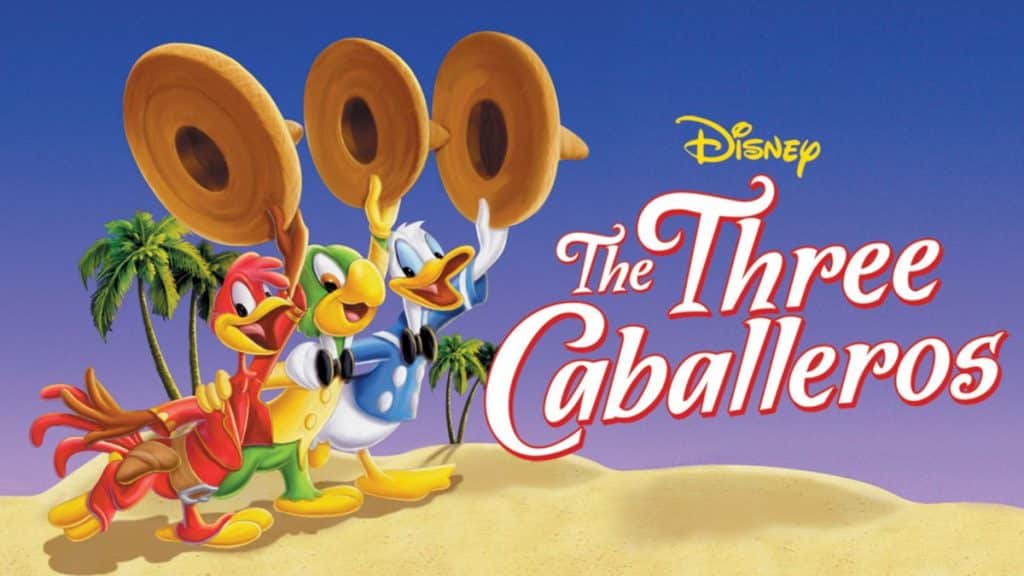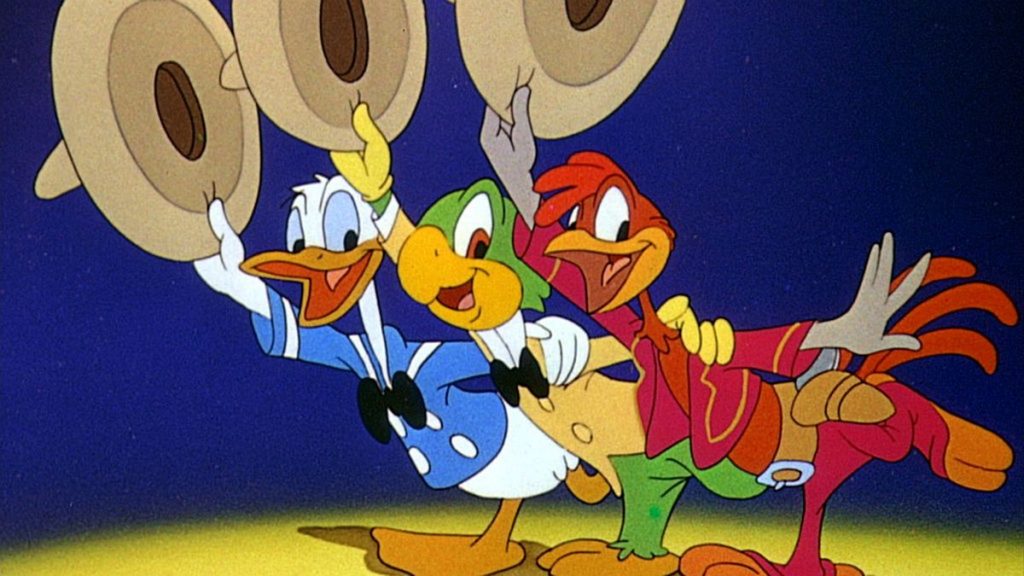
The Three Caballeros Retro Review
The second of Disney’s Latin-inspired films, as part of the Good Neighbor program, brings Donald Duck and Jose Carioca back on movie screens, while introducing us to more of Latin America. “The Three Caballeros” is the immediate sequel to “Saludos Amigos.” Released in 1944, Donald goes to South America to reunite with Jose and learn more about South American culture before heading to Mexico where they meet the third caballero, Panchito Pistoles.
In my opinion, this is the superior Latin-inspired package film produced by the Walt Disney Animation Studios during World War II and my favorite of Disney’s Wartime Era films. I’m not the biggest fan of the package film style, as I prefer an established narrative from beginning to end of the film, but “The Three Caballeros” does a better job connecting its shorts than “Saludos Amigos” did. There’s a definite connection between each short as Donald and Jose appear in all but two of them. Connecting them, however superficially, makes it easier for viewers to follow and, at least to me, is the superior stylistic choice. While the inclusion of “The Cold-Blooded Penguin” and “The Flying Gauchito” seem a little out of place without Donald and Jose, their inclusion is still a fun little diversion at the beginning of the film. Although, they would, admittedly, probably make more sense in a different film.
I’ve always been enamored with the Latin culture and I think this film does a better job representing that culture. While “Saludos Amigos” focuses a lot on the team of animators taking a trip to Latin America to learn about the culture, a lot of the America influence still makes it into that film. While you can still see the American influence in “The Three Caballeros,” you get a better idea of what the filmmakers are trying to convey. More animated sequences help to represent that culture. And the blend between animation and live action is wonderfully done here to where it’s believable the people of Mexico are interacting with Donald, Jose and Panchito.
I think my favorite of the shorts shown in “The Three Caballeros” is “Las Posadas.” It’s really cool to see how Mexican families celebrate Christmas and how it differs from American families and their Christmas celebrations. Plus, the idea of Donald Duck hearing Christmas and automatically singing “Jingle Bells” caused my son and I to burst out laughing more than any other point in the film.
Donald’s actions in this film are a little questionable. In almost every short, if he sees beautiful women, he tried to chase them down for affection. It’s played for laughs and certainly works better because he’s an animated duck and not an actual person acting like this. It’s another case of something that was acceptable in the 1940s that probably wouldn’t work today. It’s not the most egregious issue in an early Disney work, but it’s one I’m sure would be altered with the passage of time. That being said, I still really enjoyed this film and I would watch it again, unlike some other early Disney works.
Ranking: 3 stars out of 5
What did you think of “The Three Caballeros?”




